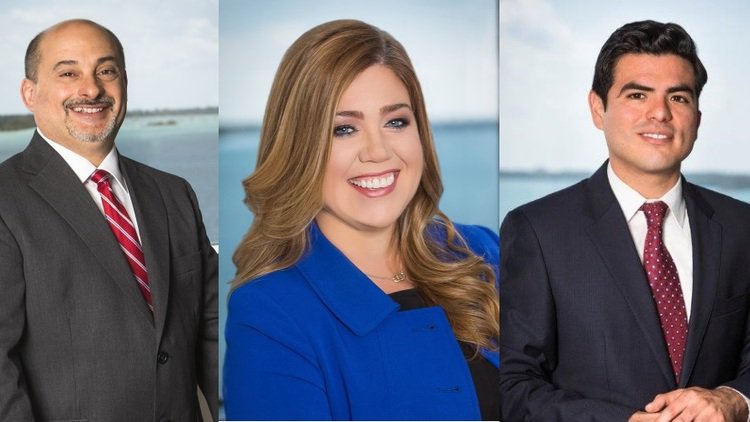Asset recovery column: Recognition of an individual debtor’s insolvency proceeding – beware the perils

Shareholders Edward Davis Jr and Leyza B. Florin, and attorney Juan Mendoza from Sequor Law in Miami discuss the things to watch out for when seeking recognition of an individual debtor’s foreign insolvency proceedings in the US.
Recognition of a foreign insolvency proceeding in the United States allows the use of an arsenal of asset recovery weapons for a cross-border practitioner, including the opportunity to obtain discovery relating to the financial condition of the debtor, and to commence actions to collect property and liquidate claims. This arsenal may be particularly effective in situations where an individual debtor flees the jurisdiction of his or her pending bankruptcy case to the United States.
Such a change of circumstances may disturb the debtor’s ties with the jurisdiction of the pending insolvency, however, and alter the foreign trustee’s ability to obtain recognition of the foreign insolvency in the United States. This column discusses the nuances a practitioner must consider when pursuing recognition of an individual debtor’s foreign insolvency under Chapter 15.
To obtain recognition of a “foreign main proceeding” under Chapter 15 – the United States’ analogue to the Model Law on Cross-Border Insolvency – a foreign representative of the foreign insolvency proceeding must show, among other things, that the foreign proceeding is pending in the country where the debtor has his or her centre of main interests (COMI). An individual debtor’s COMI is defined as the debtor’s “habitual residence”. The foreign representative may also obtain recognition of the foreign proceeding as a foreign non-main proceeding if the debtor has an “establishment” in the country where the foreign proceeding is pending. “Establishment” is defined as a place of operations where a debtor carries out non-transitory economic activity.
As the determination of an individual debtor’s COMI or establishment is a fact-intensive inquiry, the operative date for the determination of COMI or establishment could be pivotal in obtaining recognition. US courts are split on the operative date for the determination of the COMI. Some courts have noted that the operative date to determine the COMI is the date on which the Chapter 15 petition was filed. However, several US courts have held that the operative date for determining a debtor’s COMI or establishment is the date on which the foreign insolvency commenced.
Though this split of authority is yet to be specifically addressed in the text of Chapter 15, UNCITRAL’s revision to the Guide to Enactment and Interpretation of the UNCITRAL Model Law on Cross-Border Insolvency in 2013 clarified that the date of the commencement of the foreign proceeding is the operative date to determine the COMI. It would be up to the US Congress to pass an amendment to Chapter 15 to conform it to this development, which to date remains an open issue for US courts.
In a situation where an individual debtor moves to the United States after the commencement of the initial insolvency proceeding and establishes residence and financial ties in the US, the determination of the COMI or establishment – and possibility of recognising the foreign insolvency proceeding – is a function of whether the operative date for the determination of COMI or establishment is the date of the filing of the initial proceeding or the Chapter 15 proceeding.
If the operative date were the commencement of the foreign proceeding, as clarified by the Guide to the Model Law, the individual debtor’s habitual residence would likely be located in the foreign jurisdiction. This would likely result in the finding that the debtor’s COMI or establishment was the jurisdiction of the foreign proceeding. The opposite is true if the operative date is the date of the Chapter 15 filing, as the individual debtor may have developed close ties to the United States, such as changing address, opening new bank accounts and establishing other signs of permanency.
Once the operative date is established, the court must analyse the debtor’s circumstances to determine the debtor’s COMI or establishment. As habitual residence is not defined by the bankruptcy statute, it raises yet another level of uncertainty. Though there is no definition for the term habitual residence, courts seem to equate habitual residence with domicile, a concept typically used in the bankruptcy context in the analysis of venue and exemptions to discharge.
Like domicile, habitual residence refers to both an individual debtor’s physical presence, or residency, and the debtor’s intent to remain at that residence. The former consideration may seem like a straightforward one since it is hard to dispute a debtor’s physical presence. Yet situations arise where a debtor travels between two separate countries, which makes the analysis of physical presence more difficult.
The latter consideration of intent requires an inquiry relating to the debtor’s state of mind, which involves both objective and subjective considerations. To assist with the analysis of the debtor’s state of mind, courts consider the location of a debtor’s family, the debtor’s reasons for moving, the length and continuity of the debtor’s residence, the stability and continuity of the debtor’s employment, and apparent intentions to remain at his or her residence. Courts also consider documents filed with governmental agencies, such as immigration documents, to discern whether a debtor intended to remain in a certain place.
As every individual has different circumstances, the factual scenarios regarding the debtor’s habitual residence are endless. Consider the following examples: a businessperson who travels between offices in different countries with family in both countries; a couple that move to the United States on an investor visa but leave their children in their home country; and a person with no family who moves to the United States as a permanent resident but is incarcerated for a significant period. Each scenario would entail a unique analysis regarding the debtor’s state of mind.
A Florida decision displays the factual complexity that may complicate an individual debtor’s Chapter 15 COMI analysis. In Richardson, the court analysed the habitual residence of an individual debtor who was in the process of moving to Florida from the UK under an investor visa, shortly after the commencement of an insolvency proceeding against him in the UK.
Analysing the debtor’s COMI as of the commencement of the UK insolvency proceeding, the bankruptcy court noted that as of that date, the debtor no longer owned a home in the UK or operated a business in the UK, but retained his UK passport, UK pension account, UK email address, and immediate and extended family in the UK. Importantly, the court emphasised the debtor’s investor visa documentation, which contained a sworn statement that he fully intended to return to Great Britain upon the expiration of his visa term. Accordingly, the court held that the UK was the debtor’s habitual residence and COMI, and granted recognition of the debtor’s UK insolvency proceeding.
Practitioners must be aware of the uncertainty in the case law with respect to the operative date for the determination of an individual debtor’s COMI or establishment, and the lack of uniformity presently employed by US courts in assessing an individual debtor’s habitual residence. Most importantly, practitioners must be prepared to make factual assessments of the debtor’s circumstances and face challenges presented by such factors required to prove an individual debtor’s habitual residence.
References
Guide to Enactment and Interpretation of the UNCITRAL Model Law on Cross-Border Insolvency (2013 revision), section 141.
In re Richardson, Case No. 9:14-bk-04875-FMD, DE 120 (Bankr. M.D. Fla. 1 June 2016).
In re Loy, 380 B.R. 154 (Bankr. E.D. Va. 2007).
In re Ran, 607 F.3d 1017 (5th Cir. 2010).
In re Kemsley, 489 B.R. 346 (Bankr. S.D.N.Y. 2012).
United Nations Commission on International Trade Law (UNCITRAL), Model Law on Cross-Border Insolvency, 10, U.N. Gen. Assembly, UNCITRAL 30th Sess., U.N. Doc. A/CN.9/442 (1997), is available at their website.





